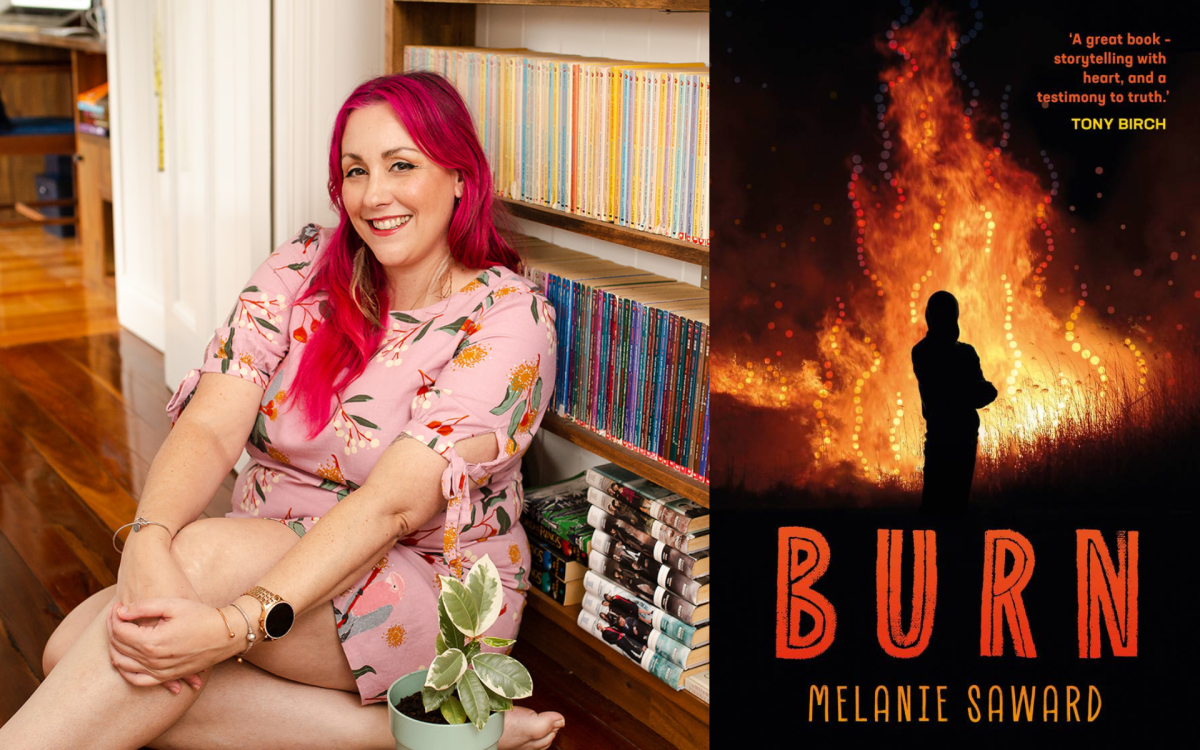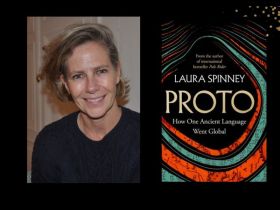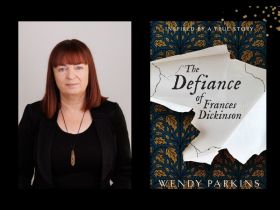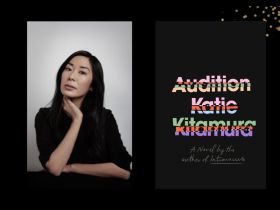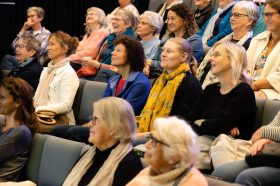Like a haunting echo, while reading Melanie Saward’s startling debut fiction novel, Burn (UQP, 2023), my mind recalled one of the most profound live performances I’ve ever seen – Tishani Doshi’s performance of The Girls Are Coming Out Of the Woods at Queensland Poetry Festival in 2016.
It is transformative performances like Doshi’s, along with powerful books by First Nations and People of Colour that Saward’s voice belongs to, that delivers lasting impact. Saward’s work sits naturally alongside brilliant writers such as Tusiata Avia (Wild Dogs Under My Skirt), Anahera Gildea (Poporakai to the Lord My God: weaving the Via Dolorosa), Tayi Tibble, (Poūkahangatus), essa may ranapiri (echidna), Eve L. Ewing (Electric Arches) , Alison Whittaker (Blakwork) and many more. Like Saward, these writers are instigators of activation and change. Rather than writing words that plant seeds in the reader’s mind, these books ignite the reader’s imagination and belief systems.
There are many memorable lines throughout Burn, which for me, as a writer quite strongly anchored in the poetic form, lend themselves naturally to a poetic lens. For example: ‘Only burning stuff has helped quieten the twitching in my bones.’
Burn reveals some answers to question such as, ‘Why are good kids misbehaving?’ and ‘Why do good kids do bad things?’ The main character whose voice carries the story, Andrew, is a smart, spunky teenager who starts a bushfire after a Friday night party. As a result of the fire, two kids are hospitalised, and Andrew is wholly aware of the fact that the police will likely come knocking on his door for questioning. Andrew is an insightful, oozing-with-potential kind of kid, who, among other things, uses the ancient tool of fire as a way of expressing a deep desire for connection and belonging.
I pick it up and turn it over in my hand, remembering my first lighter. It was just a purple plastic Bic I’d pinched out of Mum’s flowerpots, I used to keep it in my pocket, feeling like I was carrying around fire itself.
Read: Burning questions
Burn is a book that reads so naturally for the school curriculum, or a film, or a play. The characters are defiantly themselves and completely accessible. They are written in a way that makes us want to know them more. From my perspective they are reminiscent of the way Tony Birch write’s characters – with a big heart and unflinching truth.
Saward’s writing in Burn, like fire itself, is upfront. What you see is what you get. But cleverly, there is also a deep hum of tension and complex secrecy simmering away throughout the book – every now and then the pop of an ember explodes. Saward clearly knows what she is doing.
With a book that reveals Saward’s natural gift of poetry, this reviewer hopes she considers turning her pen to the form at some stage during her brilliant career as a writer.
More please.
Burn by Melanie Saward
Publisher: Affirm press
ISBN: 9781922848482
Format: Paperback
Pages: 304pg
Publication date: 29 August 2023
RRP: $34.99
This review is published under the Amplify Collective, an initiative supported by The Walkley Foundation and made possible through funding from the Meta Australian News Fund.
